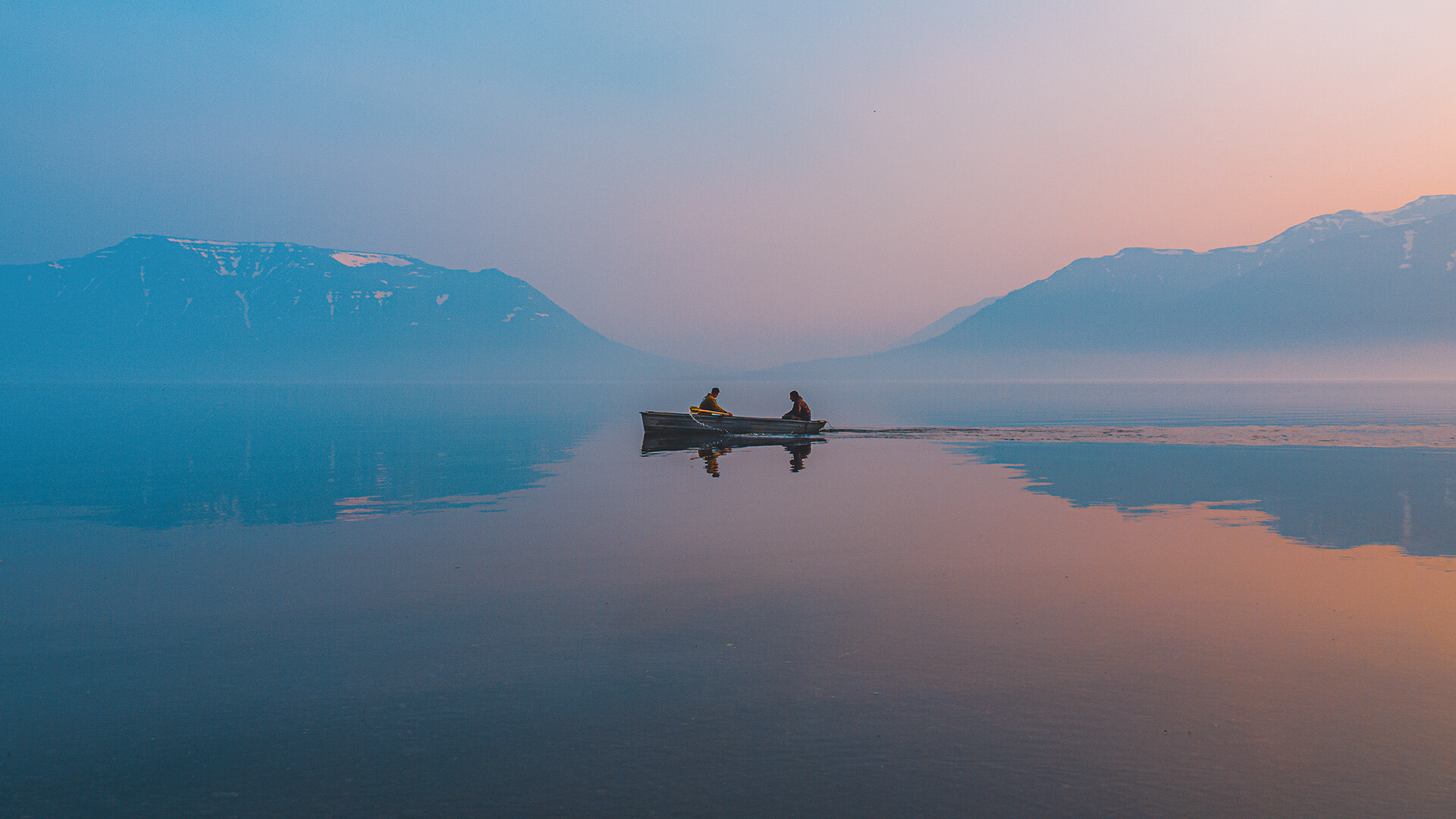
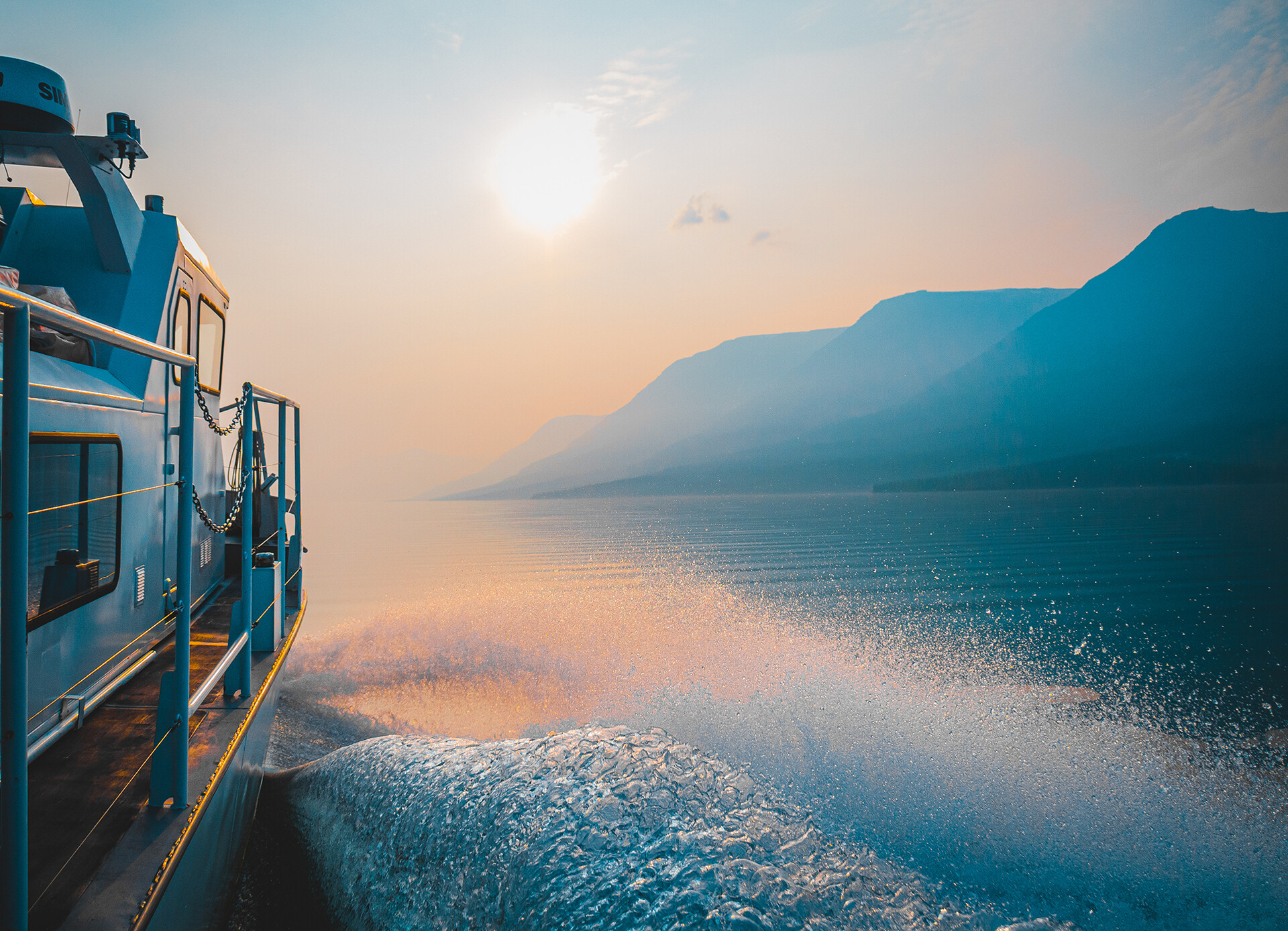
“Lake Lama makes wishes come true, but it often does it in its own way,” we were warned by our guide, Yury. “One group was on a motor boat trip and the tourists said they wanted to stay on the lake a while longer. Then, the wind picked up, the shores got shrouded in fog and the tourists had to spend several more hours on the water before they found their way back to their hostel.”
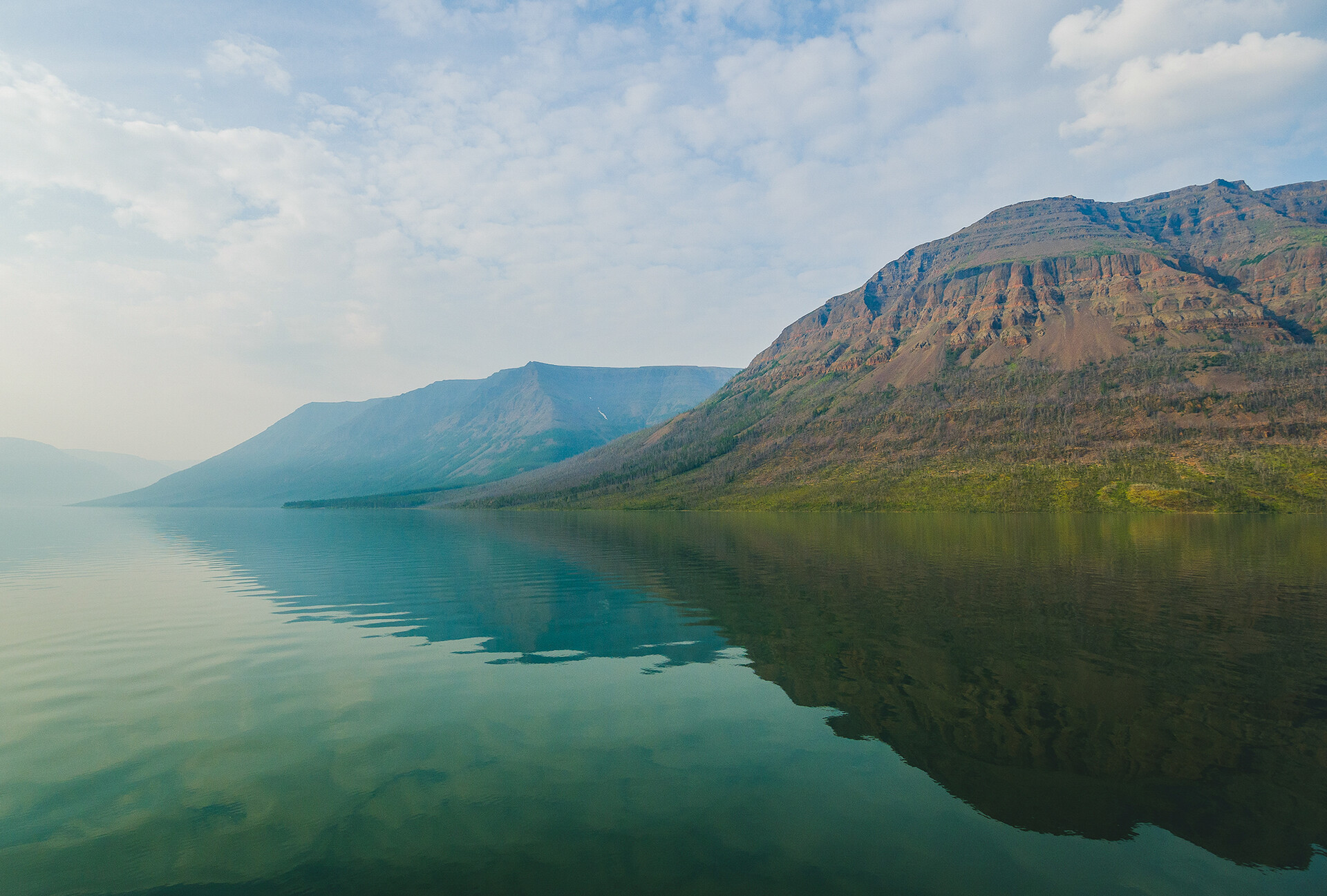
Lama is the “local lake” of Norilsk residents. The distance between the polar city in the north of Krasnoyarsk Territory and Lama is 120 km or about four hours by boat. It is also a starting point for travelers who set out to conquer the remote Putorana Plateau.
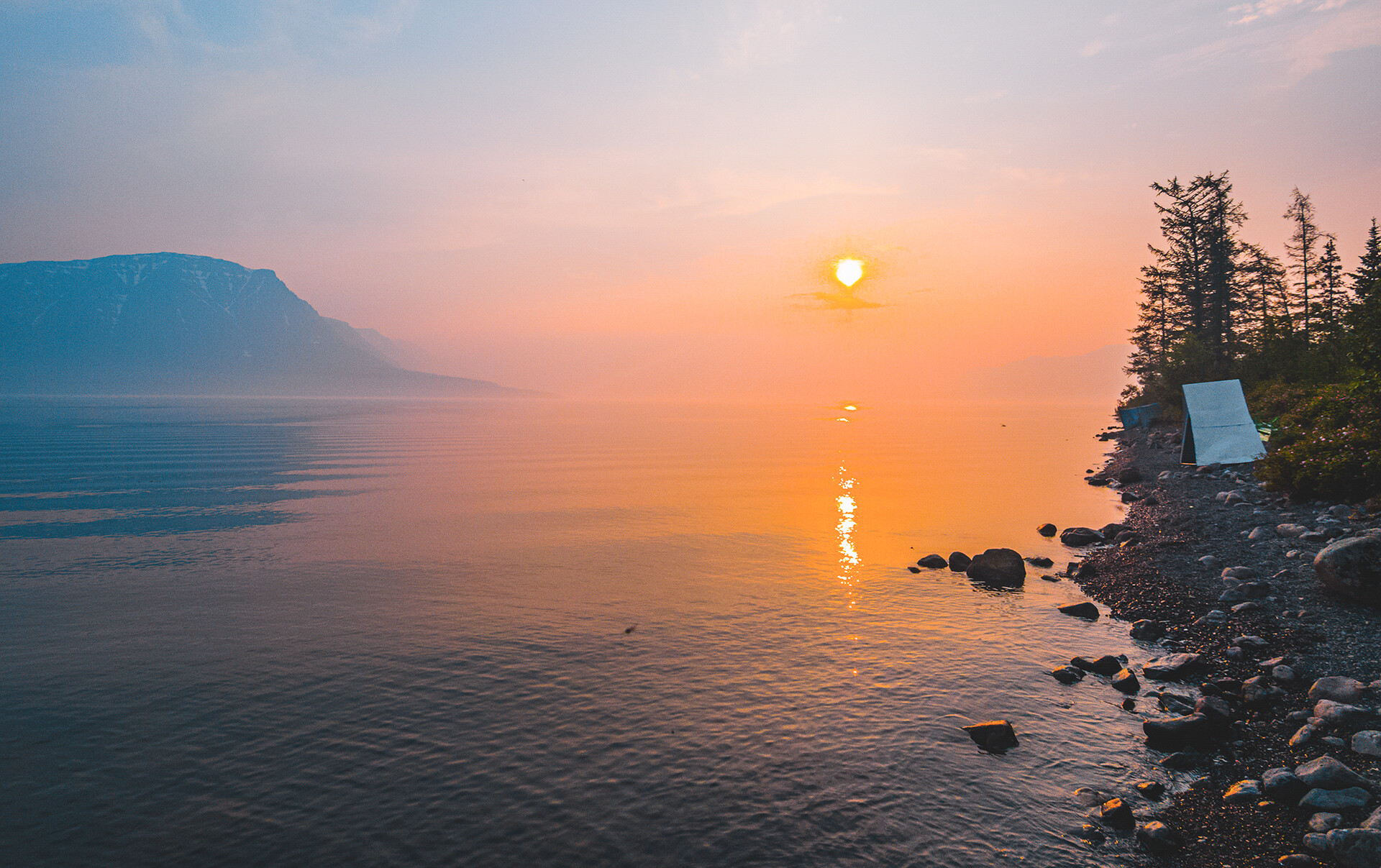
Among the countless lakes, waterfalls and mountains of the Putorana Plateau, Lama stands out not only for the beauty of its landscapes and the translucency of its water, but also its mystical atmosphere which attracts romantics and dreamers.
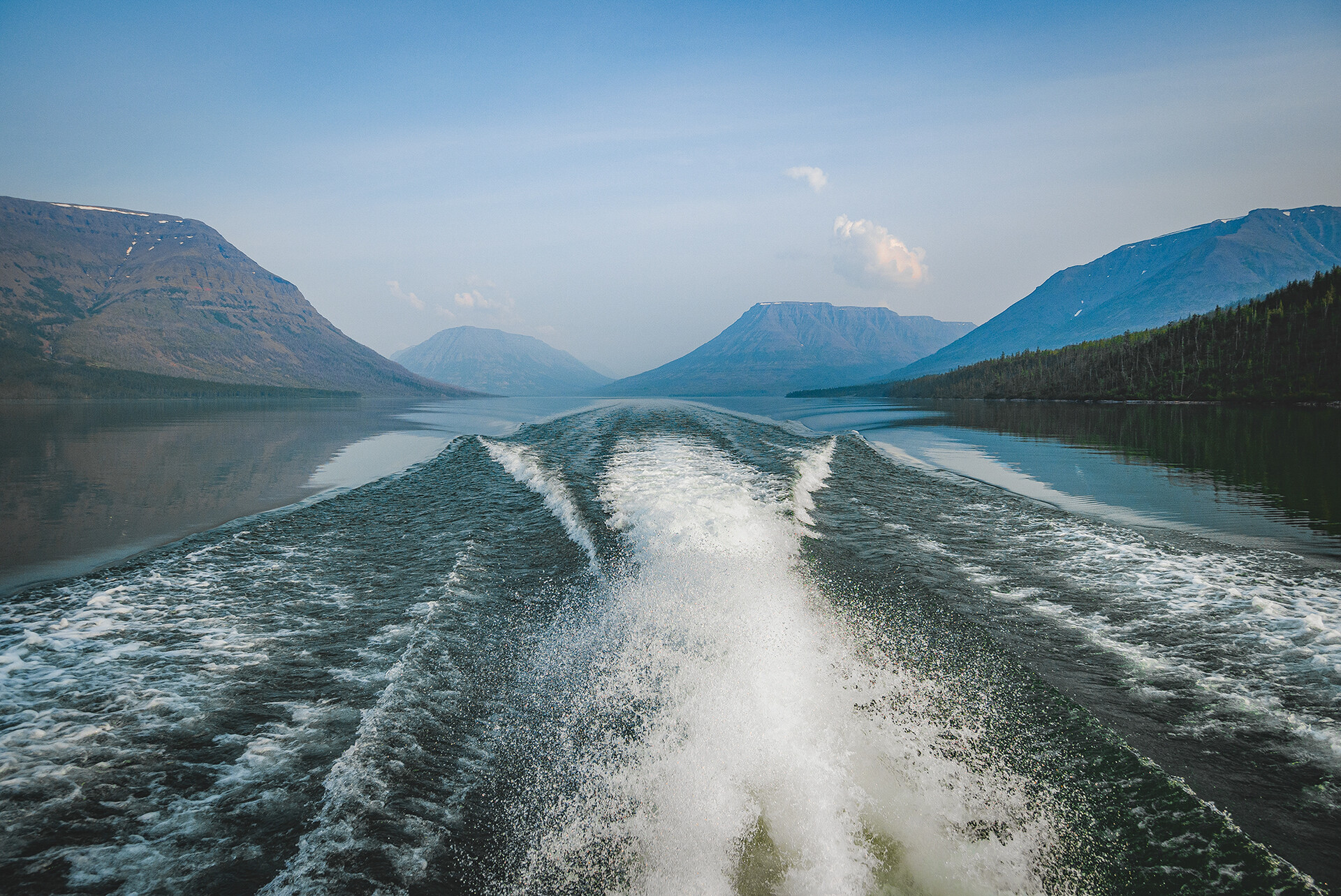
‘Lama’ means “big water” in the Evenk language. Its waters are, indeed, big: During our trip, the echo sounder on the motor boat showed a depth of more than 200 meters, with sharp dips. Scientists still don’t know how deep these are, however, since it is very difficult to study a lake that is ice-bound for most of the year and only comes to life at the end of June. It even only appeared on the map in 1921 during a geological expedition by Nikolay Urvantsev.
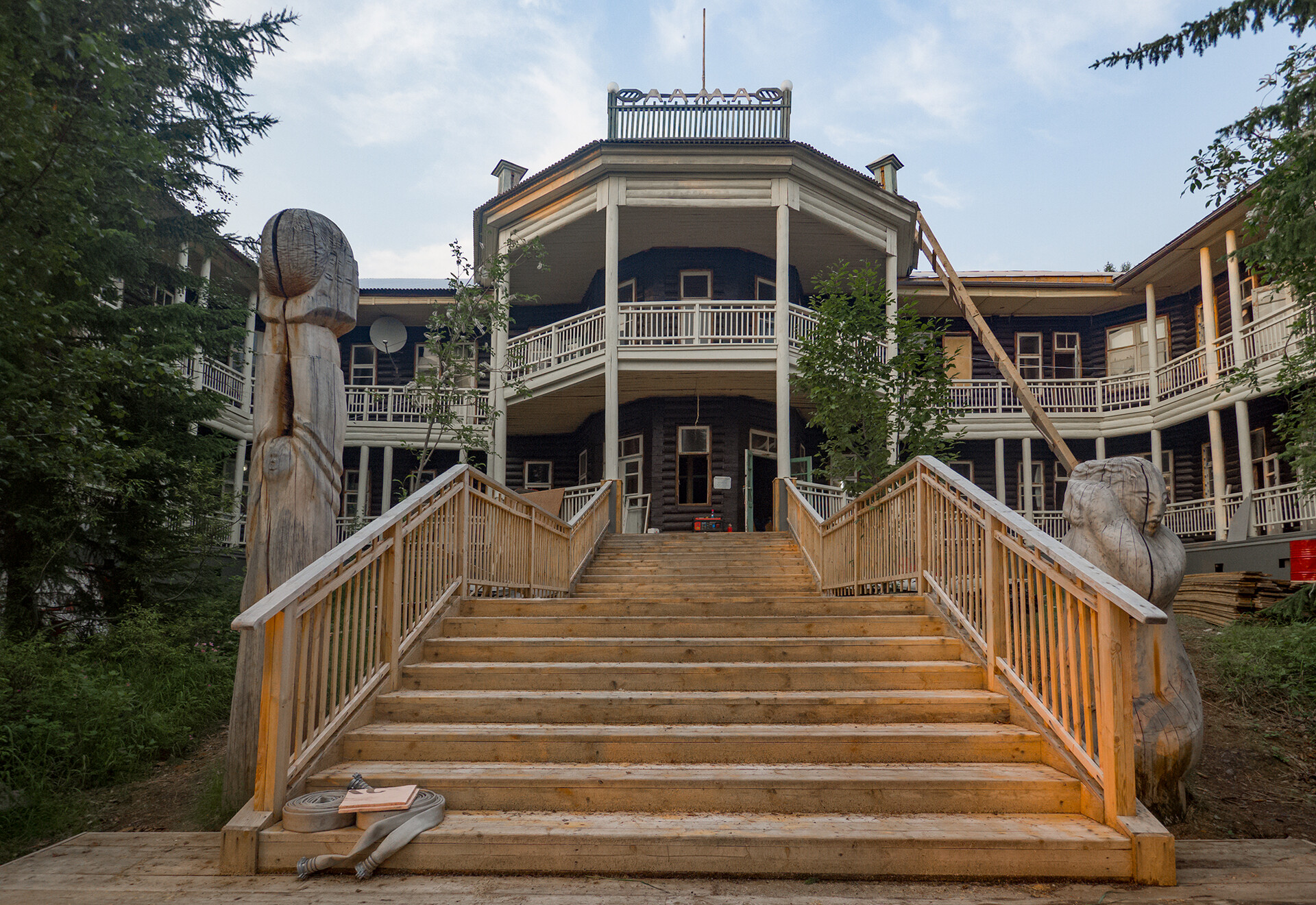
This is the oldest camp on Lama, built in 1930s for the pioneers. Now it's under repair.
Pavel KuzmichevThere are no settlements or roads at Lake Lama but the Evenks, Nganasans and Dolgans are regarded as its indigenous peoples. From time immemorial, the farthest, eastern, end of the world lake has been regarded as a powerful place. Wooden Evenk idols have been found here and, according to legend, the last surviving Evenk shamanka (female shaman) was still living there in the late 1930s. Other peoples had populated the area even before the Evenks, but we essentially know nothing about them.
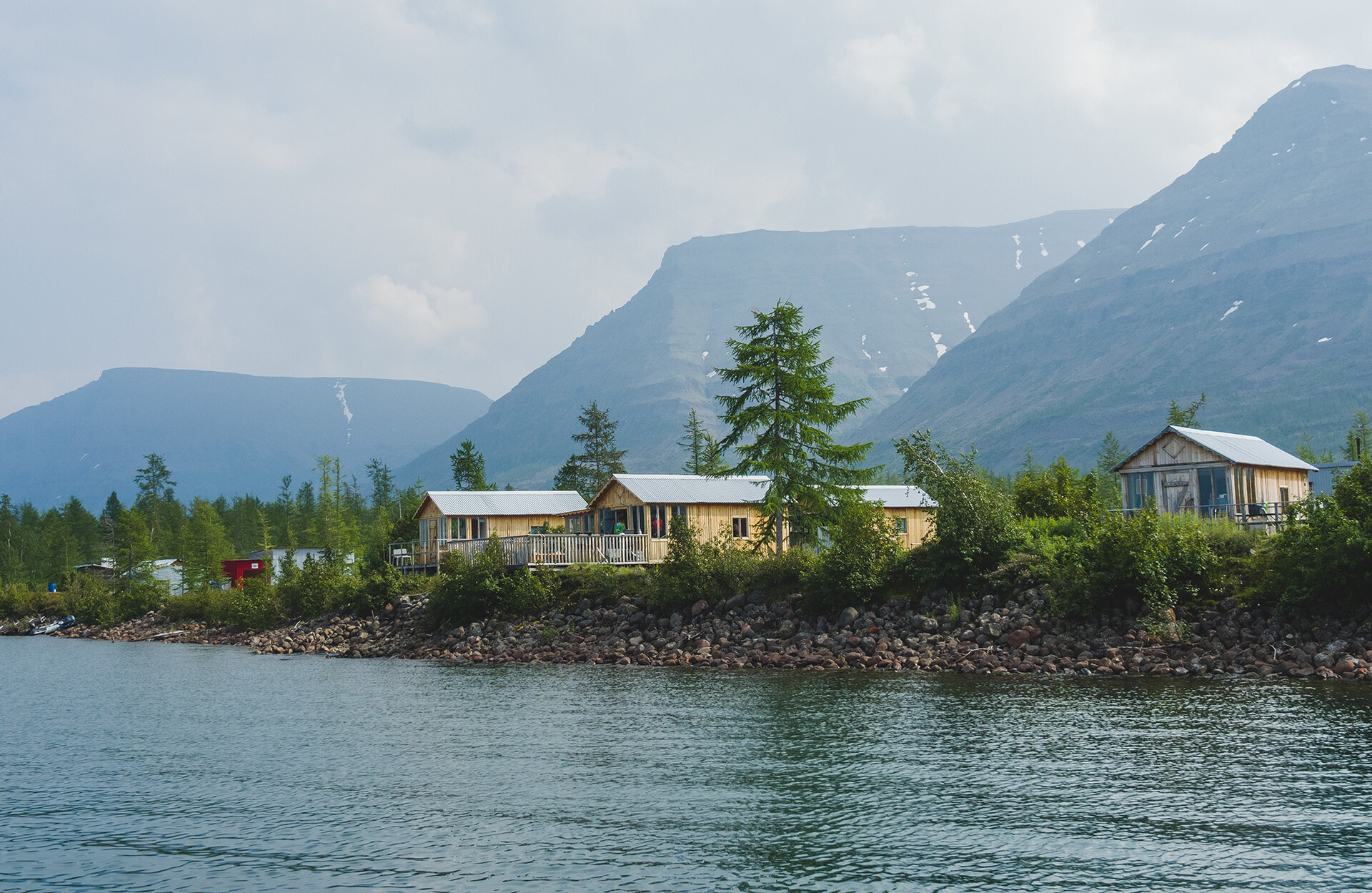
The tourist camp on Lama.
Pavel KuzmichevSoviet archaeologist Leonid Khlobystin made several expeditions to the shores of the local rivers and lakes in the mid-1970s. He discovered that the Putorana Plateau was not just inhabited 3,000-4,000 years ago, but those people were already using objects out of tin bronze, a very ancient metal alloy.
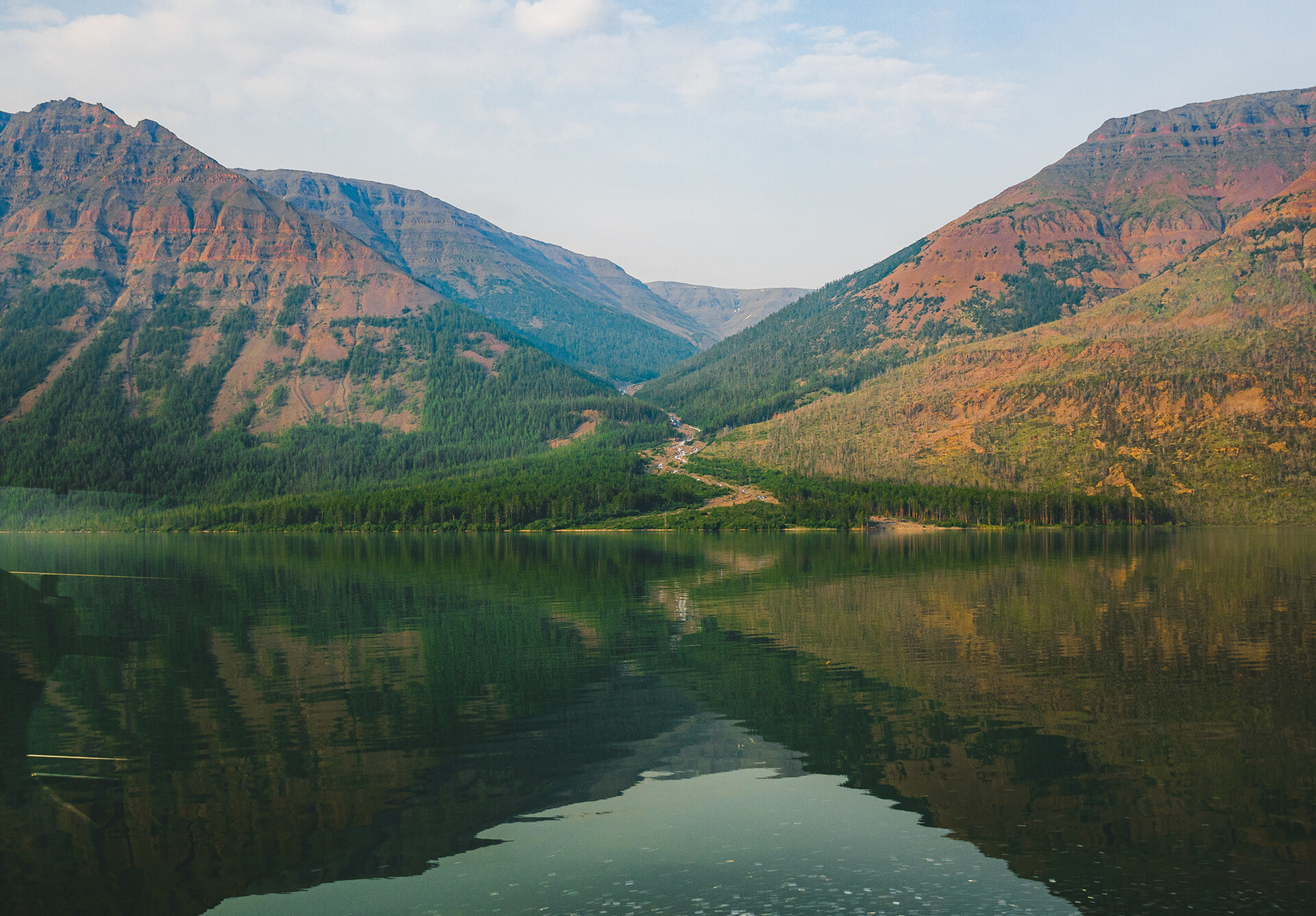
Researchers also found fragments of knives, as well as containers for smelting (melting pots) and bronze disks. The earliest bronze finds in the Arctic relate to the Putorana Plateau and are dated 18th century BC. An analysis of the bronze has shown that local craftsmen were using native copper from a Norilsk deposit.
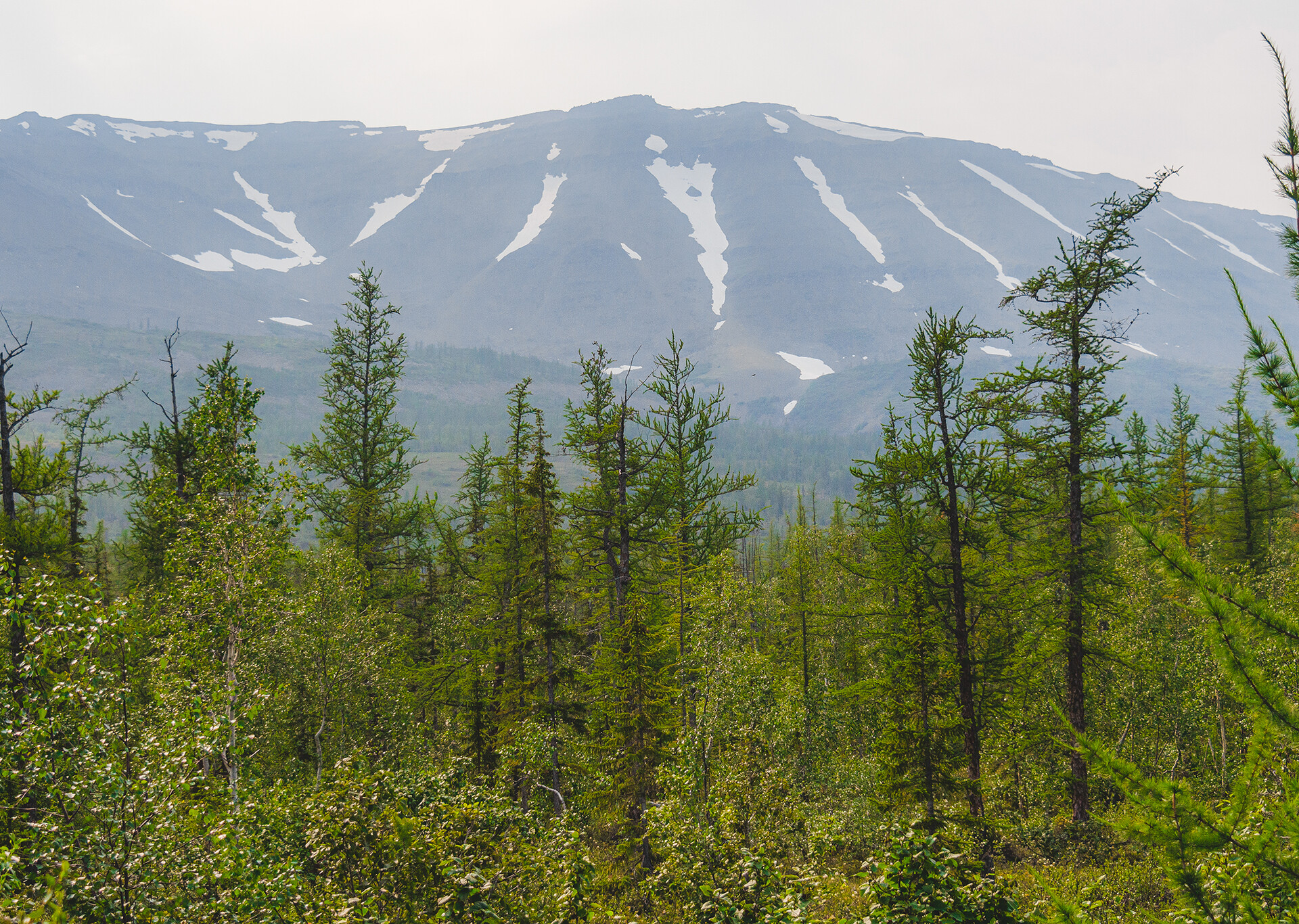
And what about other materials? Lead, bismuth and antimony are required for the manufacture of alloys. It turned out that they were supplied from other parts of Siberia - in other words, links had been established between the bronze casters of distant regions. But it is not known why these lands became deserted.
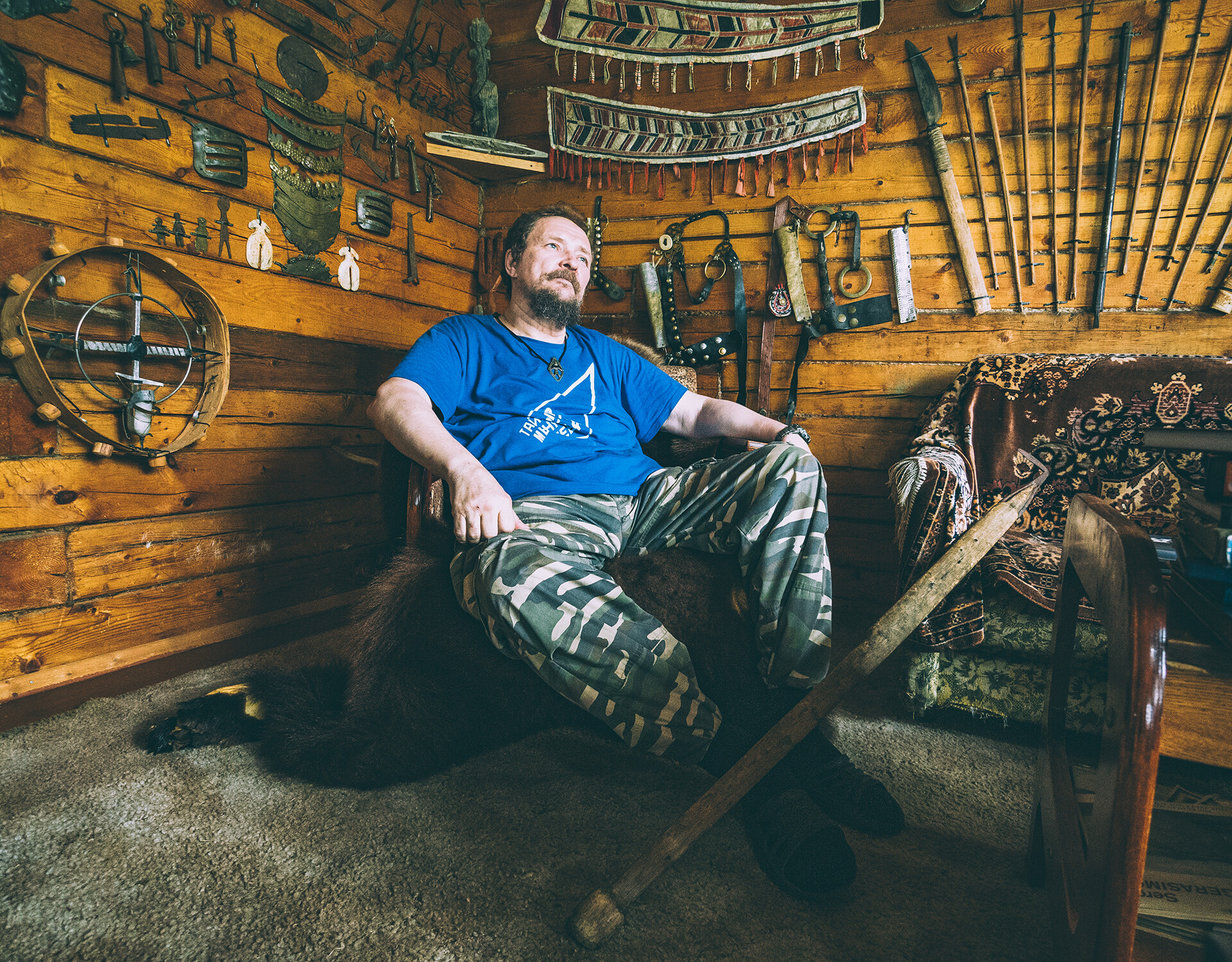
Oleg Krashevsky in his house-museum.
Pavel KuzmichevToday, the Bunisyak tourist hostel can be found here. It is more than just a leisure destination. Its founder, Oleg Krashevsky, has spent half a century collecting the old costumes, everyday items and ceremonial and symbolic objects of Northern peoples.
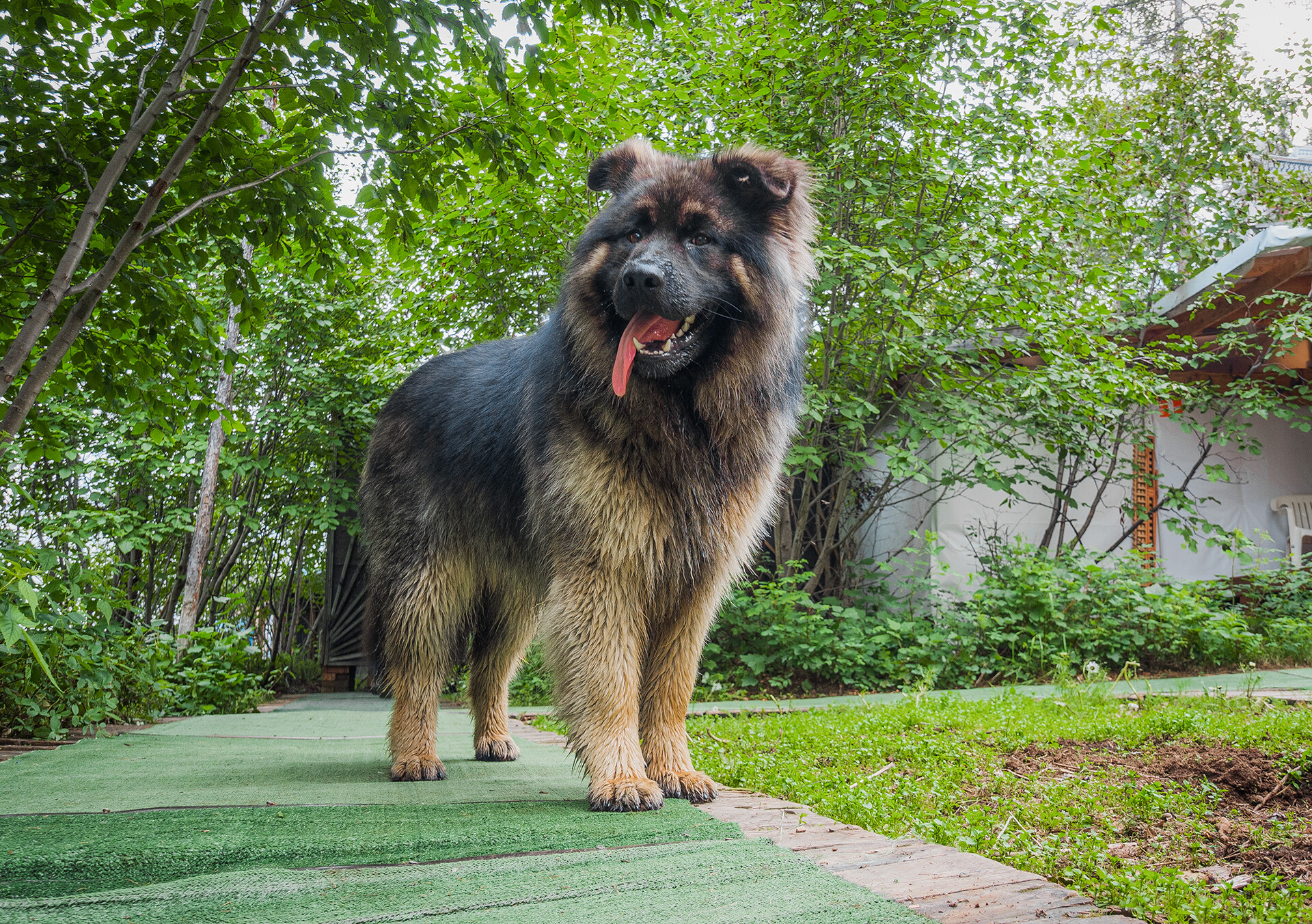
Oleg's dog Ganya.
Pavel KuzmichevHe accompanied Leonid Khlobystin on one of his expeditions and believes that the archaeologist had picked up the trail of another civilization. And, to this day, he has been making his own trips to the furthest corners of the plateau that can be reached.
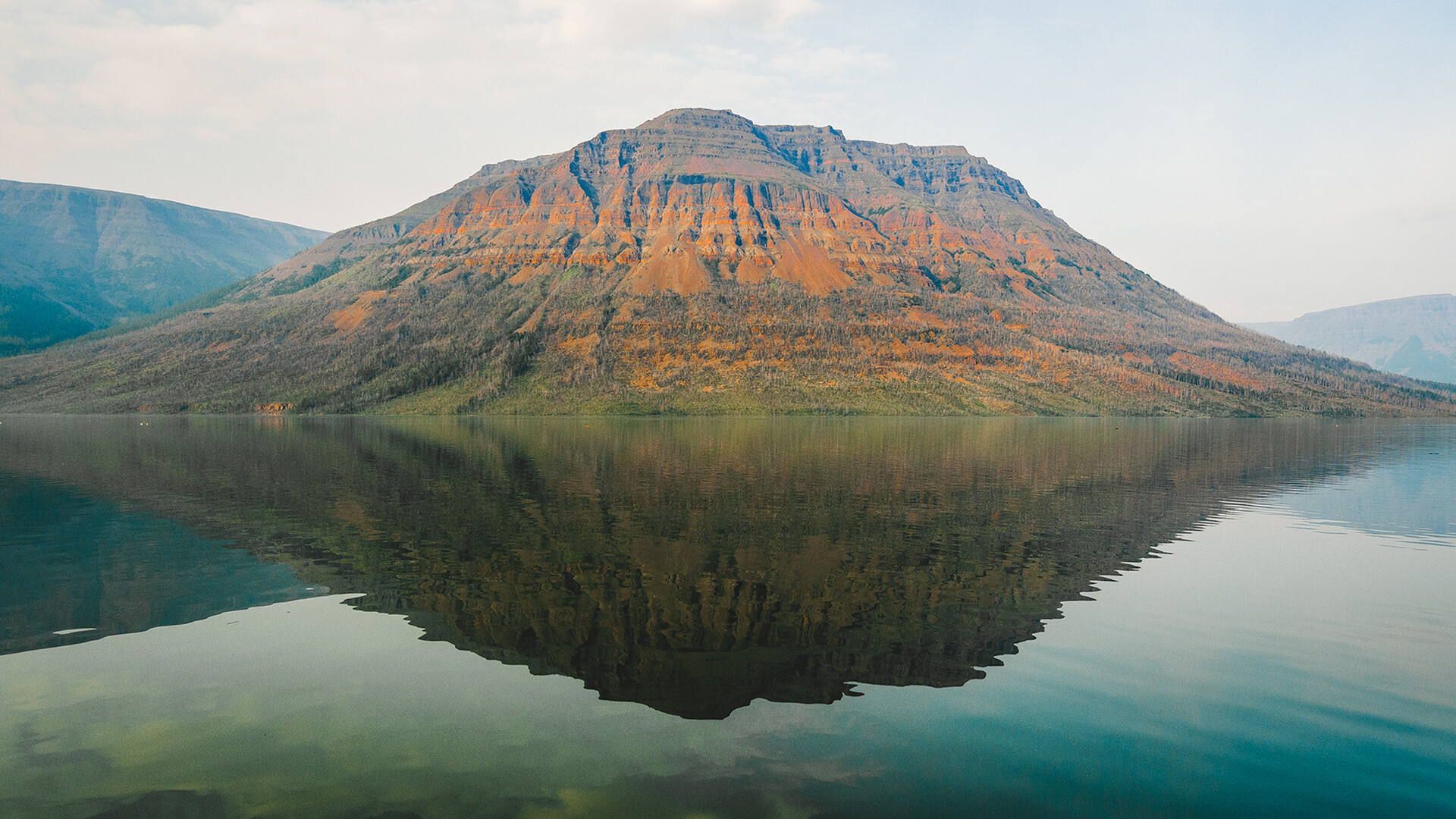
Shaitan-mountain.
Pavel KuzmichevIt would be difficult to find anyone with a better knowledge of the area. “We have discovered a large number of ancient ruins here and some kind of remains of ancient foundations with megalithic masonry and shaped blocks,” he says. “The place was once buzzing with life.”
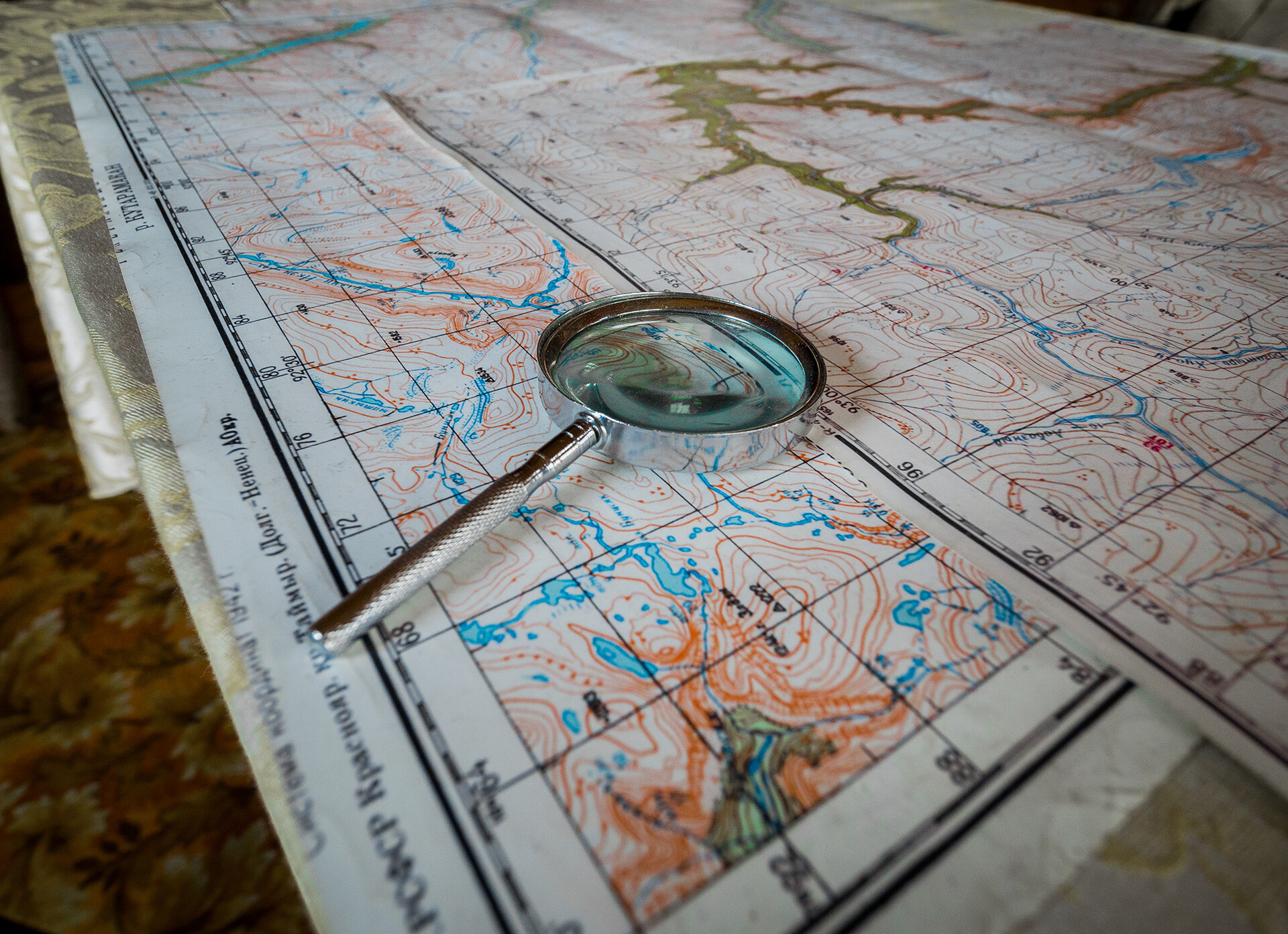
At the Bunisyak camp.
Pavel KuzmichevA geologist and game manager by training, he spent many years at the Agricultural Research Institute of the Far North and was involved in establishing the Putorana State Nature Reserve. He has 16 academic papers and three monographs to his name. The Nganasans call him their ‘White Shaman’.
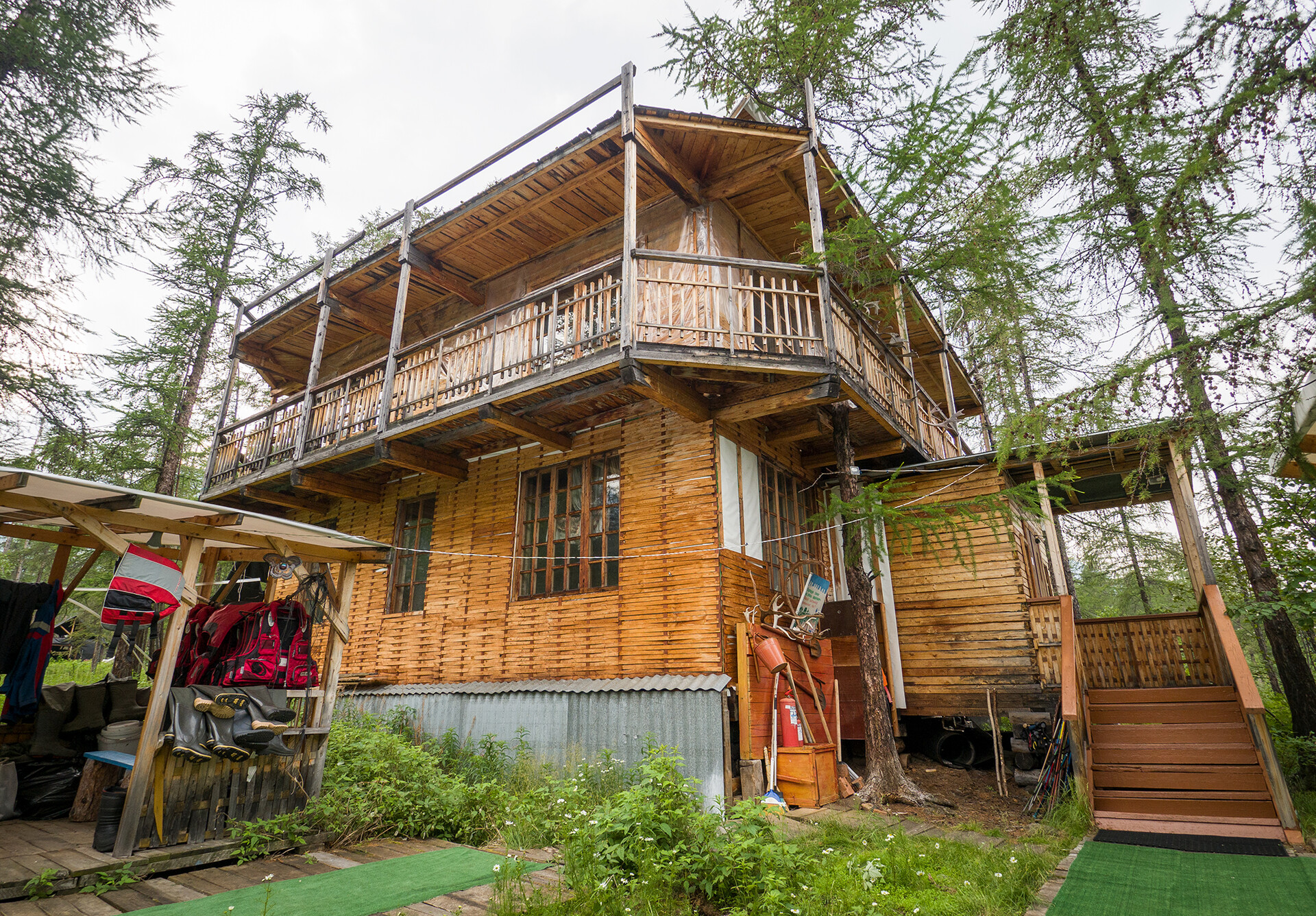
The Bunisyak tourist hostel.
Pavel Kuzmichev“My amulet is a symbol of a shaman of a Nganasan tribe. It is very ancient,“ he says. “It was presented to me by the head of one of the tribes through the female line, as well as several other objects, when I healed her arm.“
And, believe it or not, in the course of the day, which we spent visiting various tourist hostels on Lake Lama, his was the only place where we weren’t assailed by mosquitoes and gadflies. “I reached an agreement with them,“ he explained.
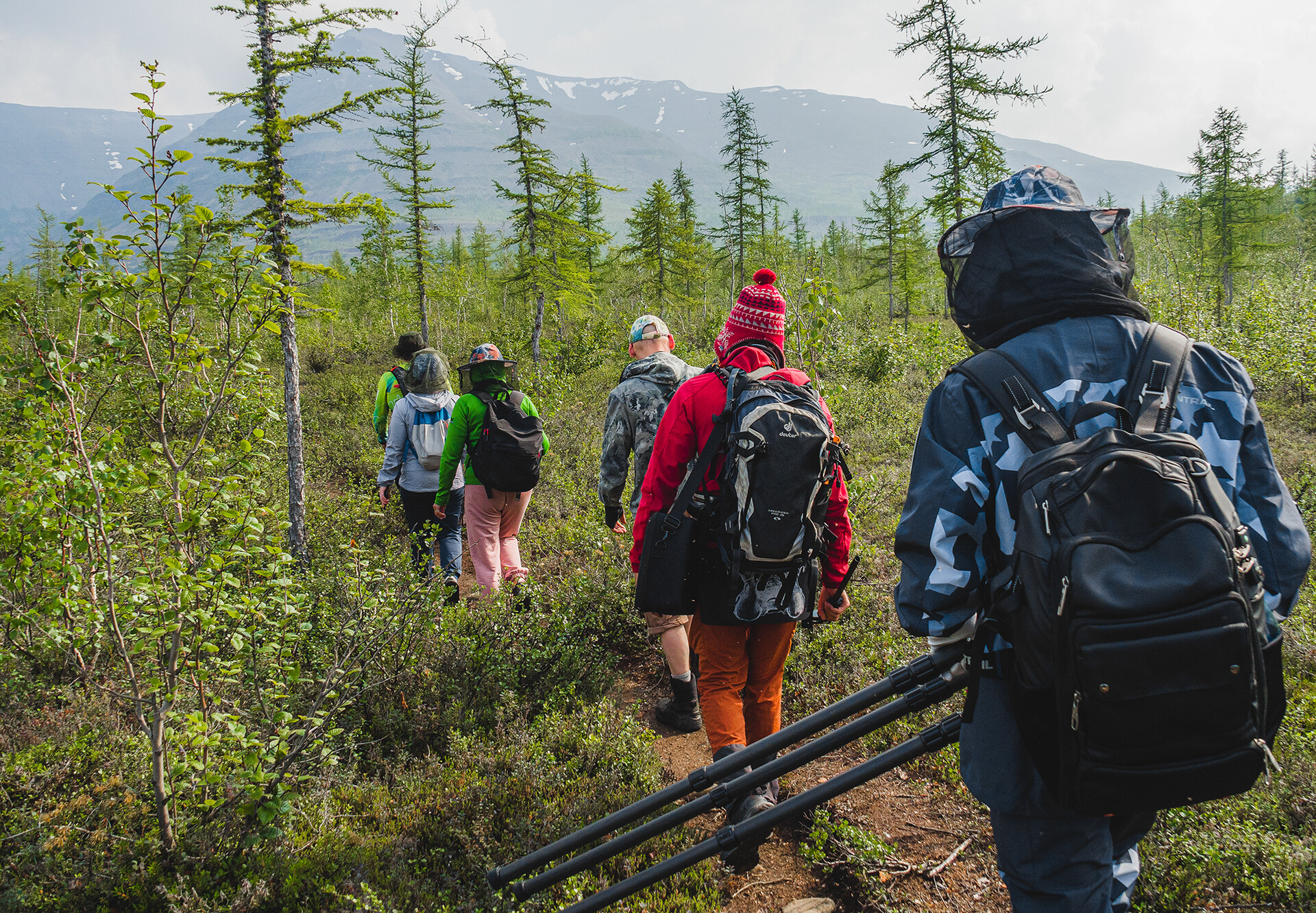
Yury's leading us to the waterfall.
Pavel KuzmichevWe head for the Neralakh waterfall in the company of our guide Yury. Its roar can be heard from a distance, but, to get up close, we have to negotiate a couple of hundred meters of steep climbs and descents.
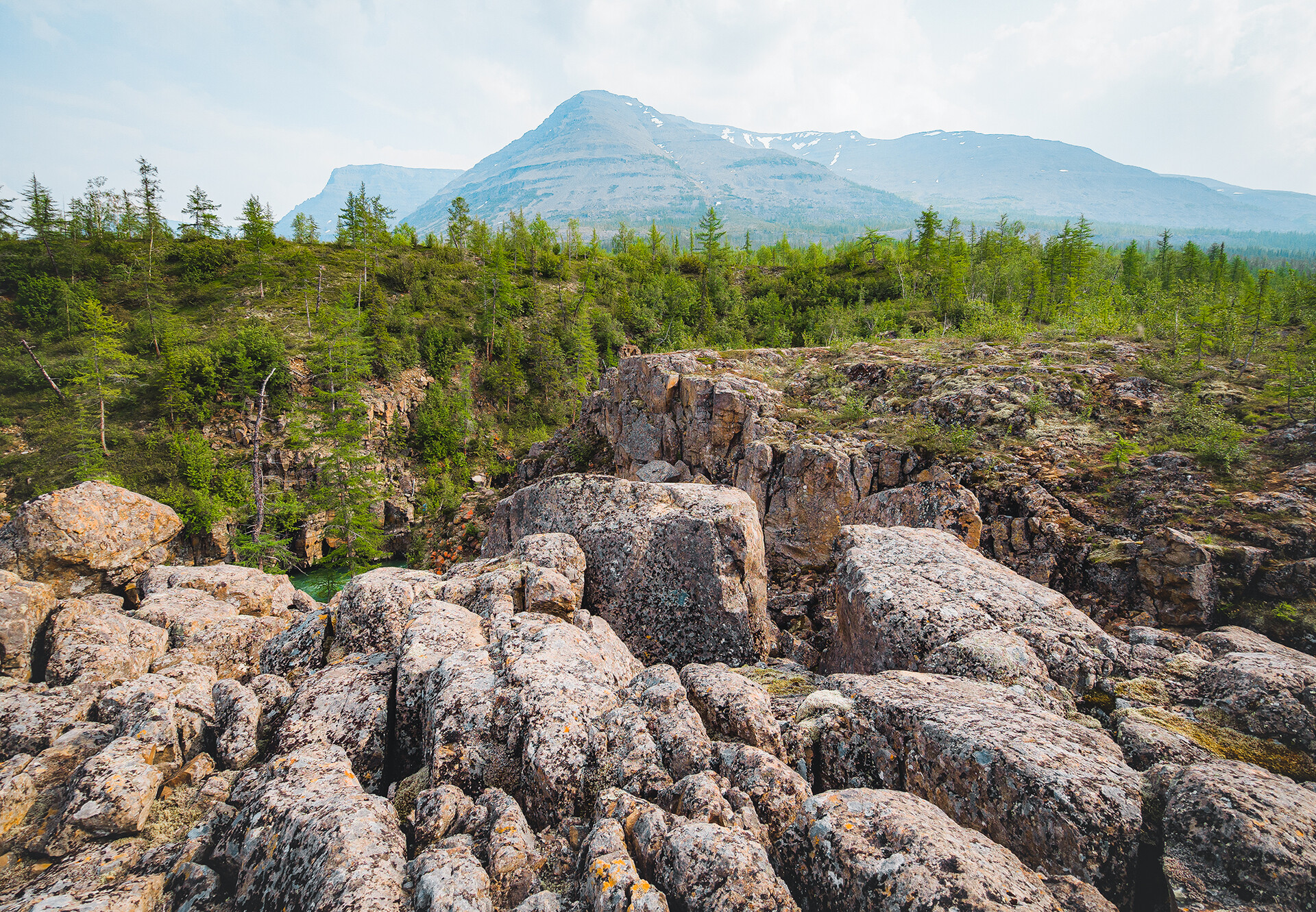
This is what ‘kurumnik’ looks like.
Pavel KuzmichevUnderfoot, the stones are unstable and seem to have a life of their own, ready to give way at any moment. The local word for them is ‘kurumnik’ and Yury explains that we should only try to tread on the moss-covered ones, as they are more stable. He does not have any mystical beliefs himself and finds a scientific explanation for everything.
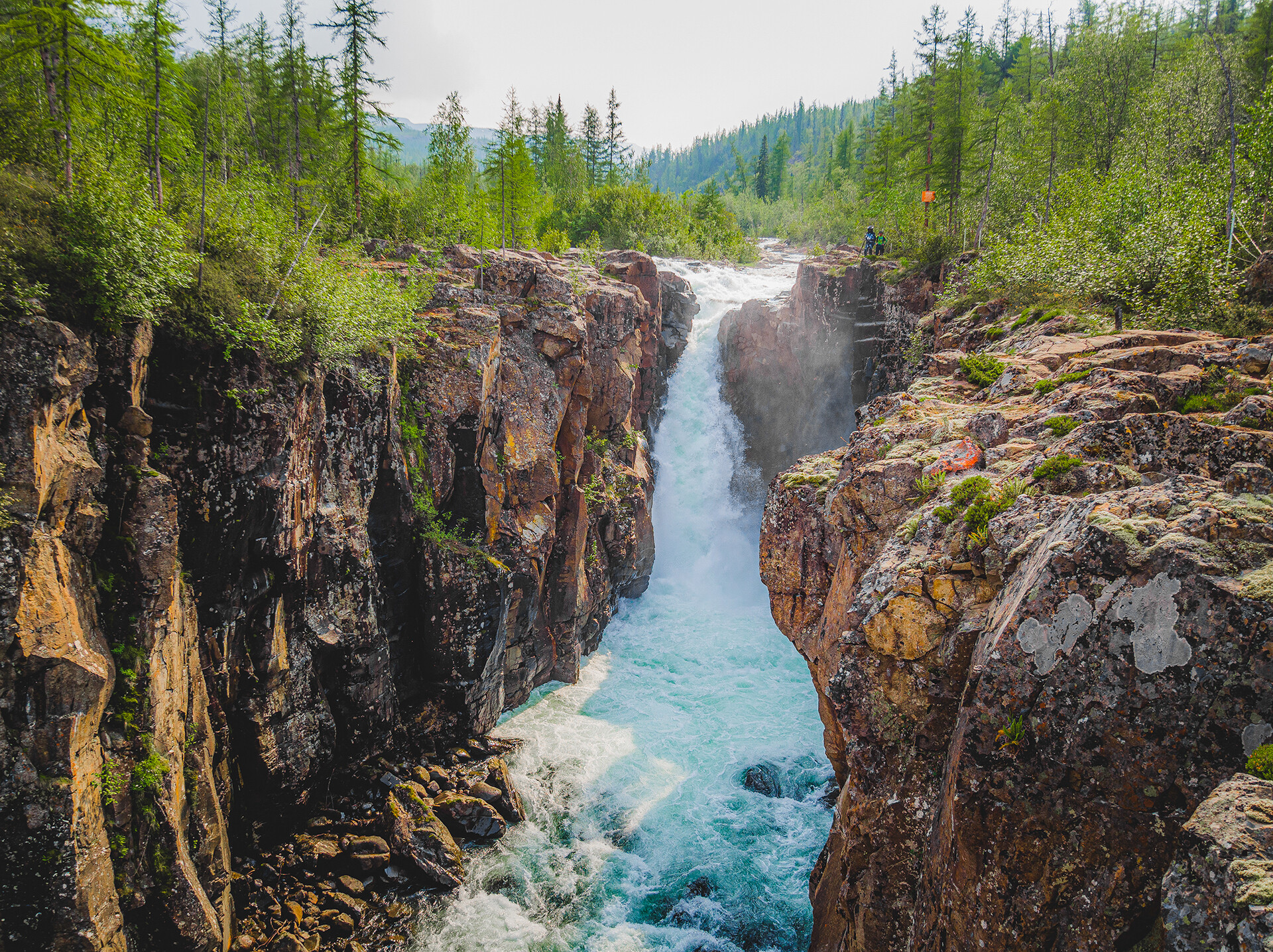
The Nerelakh waterfall. People seems so small!
Pavel Kuzmichev“I’ve never seen so many rainbows in my life as I have here. In the past month, I’ve observed them every day: One stood upright, another curved round in an arc and a third was perfectly straight.”
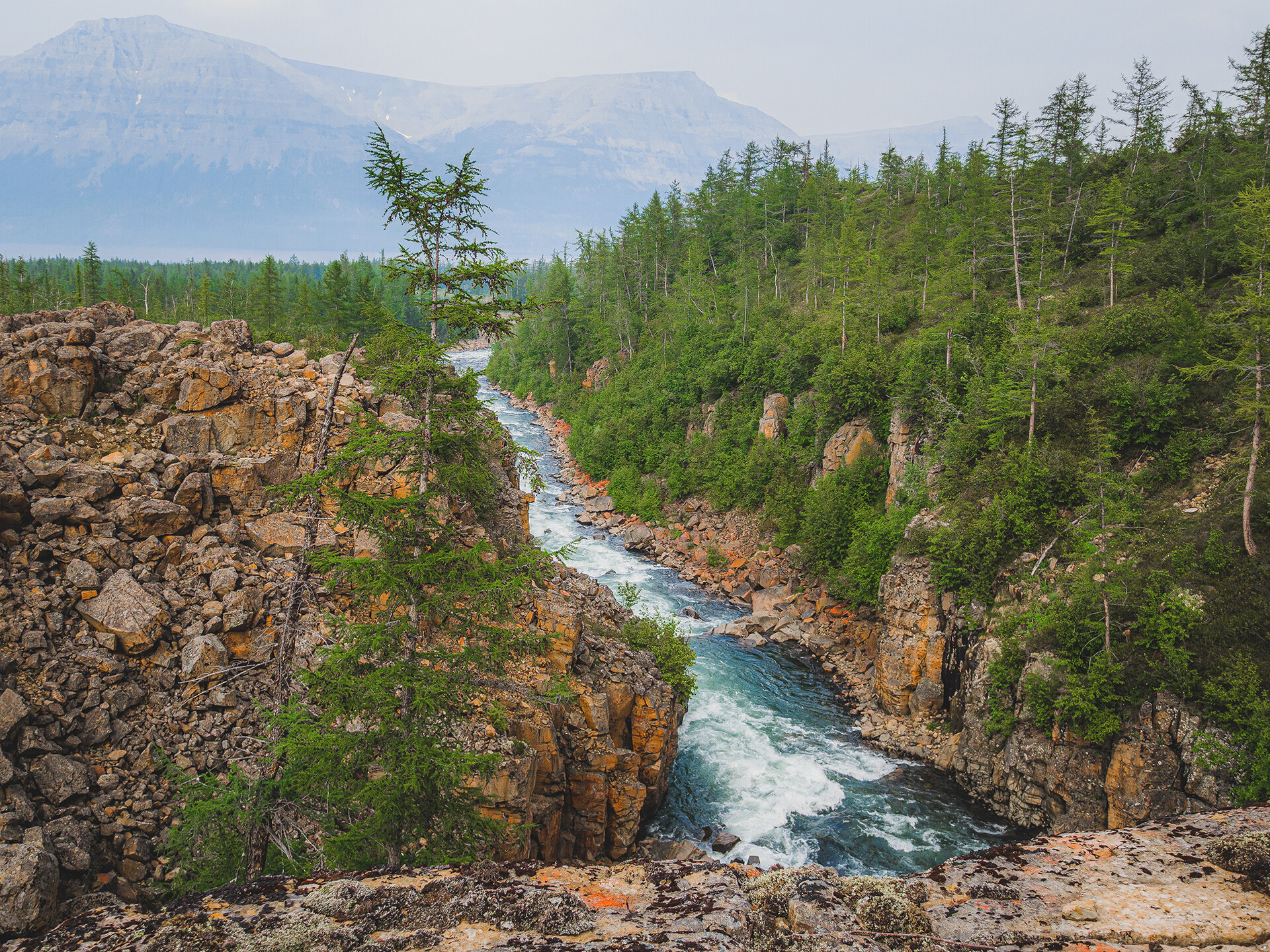
His explanation for these phenomena is that there are outcrops of geological formations on the shores of the lake, creating magnetic field anomalies, while atmospheric phenomena on the water occur, because of wide temperature variations.
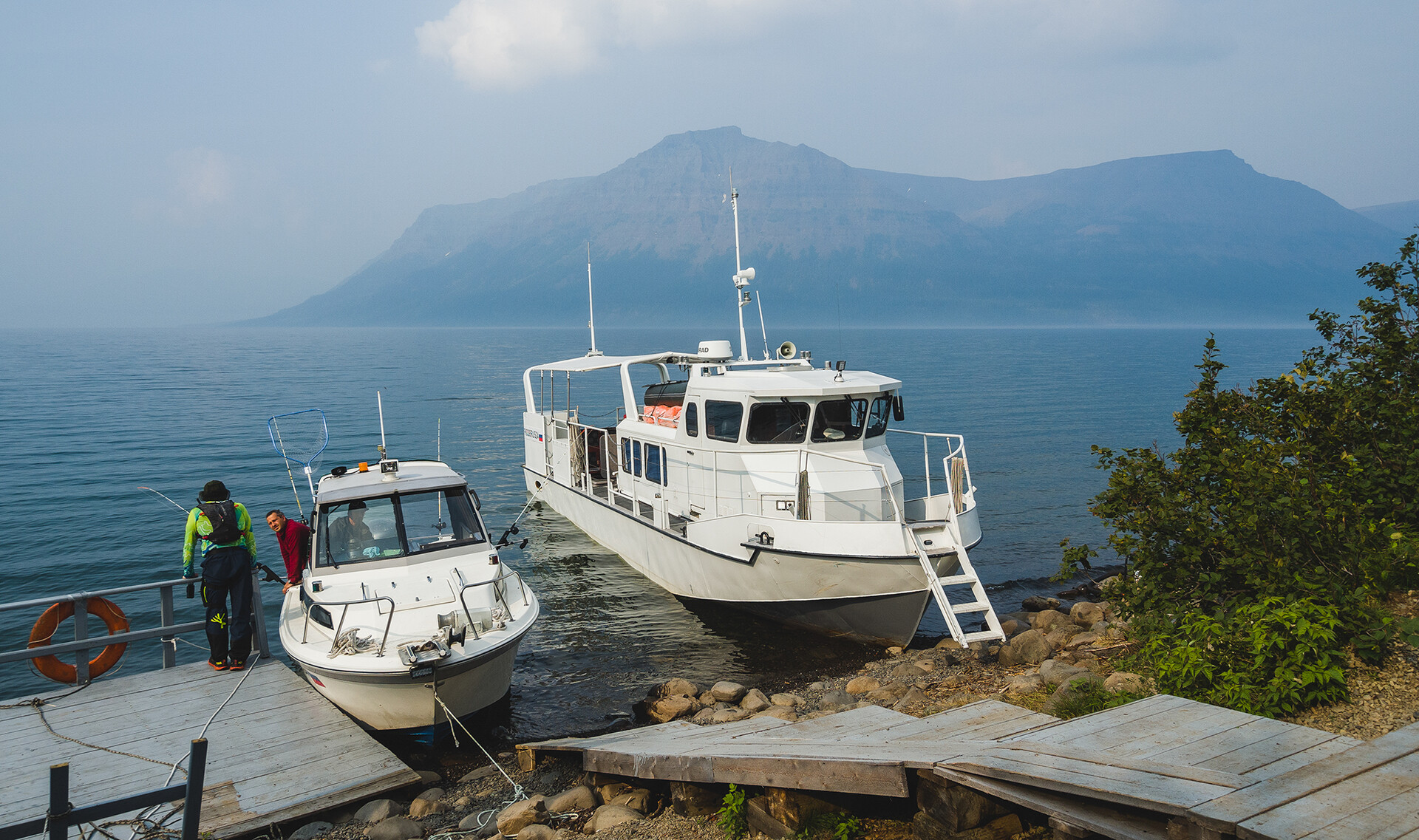
But the place, of course, exerts a very powerful spell. “People, generally, feel a rush of energy here. And Northern ethnic groups consider it a sacred place and many make a wish here,“ Yury says.
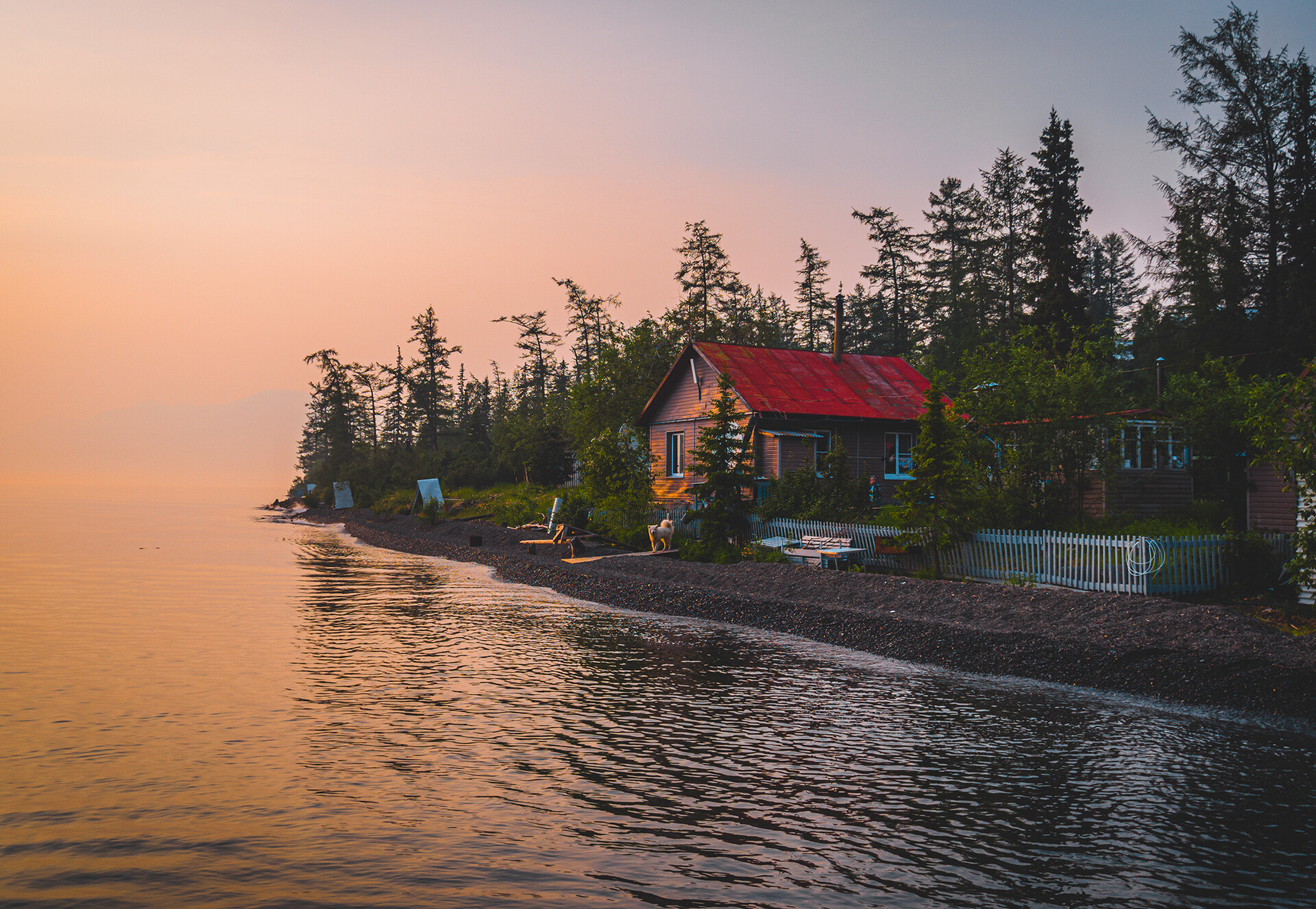
We were lucky with the weather: It was warm, the sky was clear and the lake was perfectly still, even though there had been storms with thunder and lightning on Lake Lama literally the day before and we had thought our trip would have to be canceled.
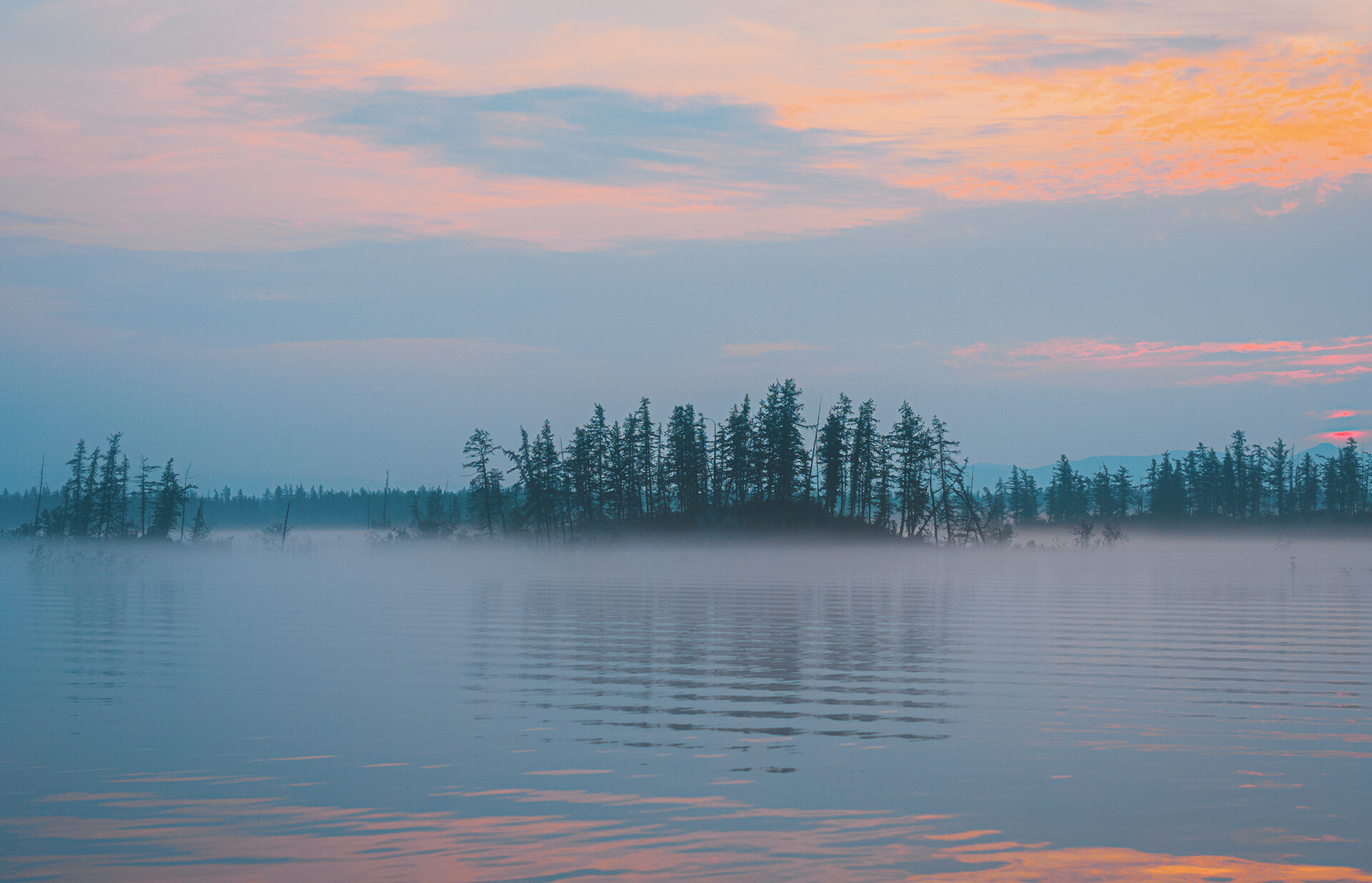
Fast forward a bit and, suffice it to say that, at the close of the day, Lake Lama displayed a simply fantastic sunset, reflected in the mirror-like water and then the densest of fog set in, which only dispersed when approaching the bright city lights of Norilsk.
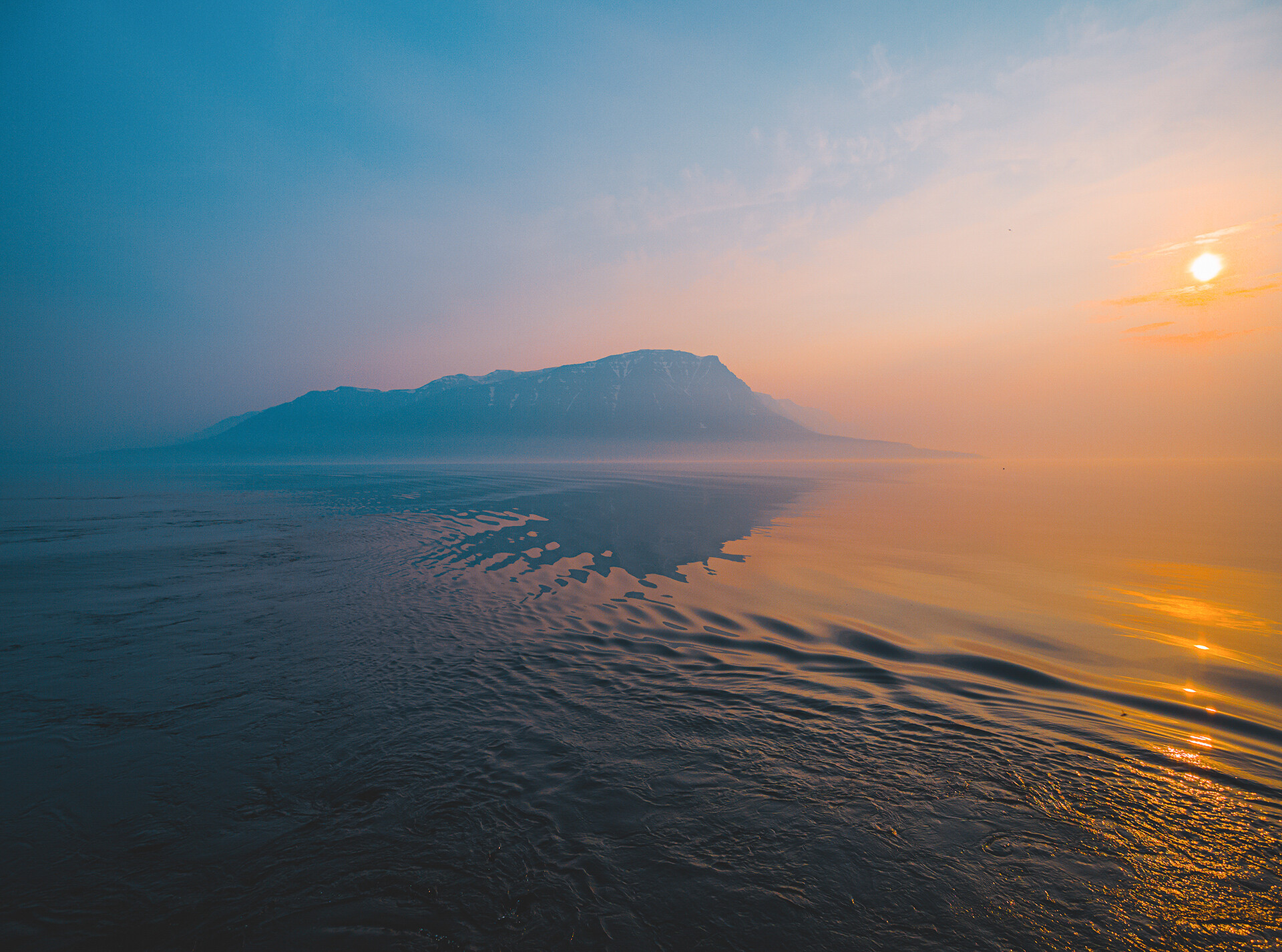
On the way there, we had discussed the prospects for local tourism and I said it would be interesting to hear what people who come to Lake Lama from afar have to say.
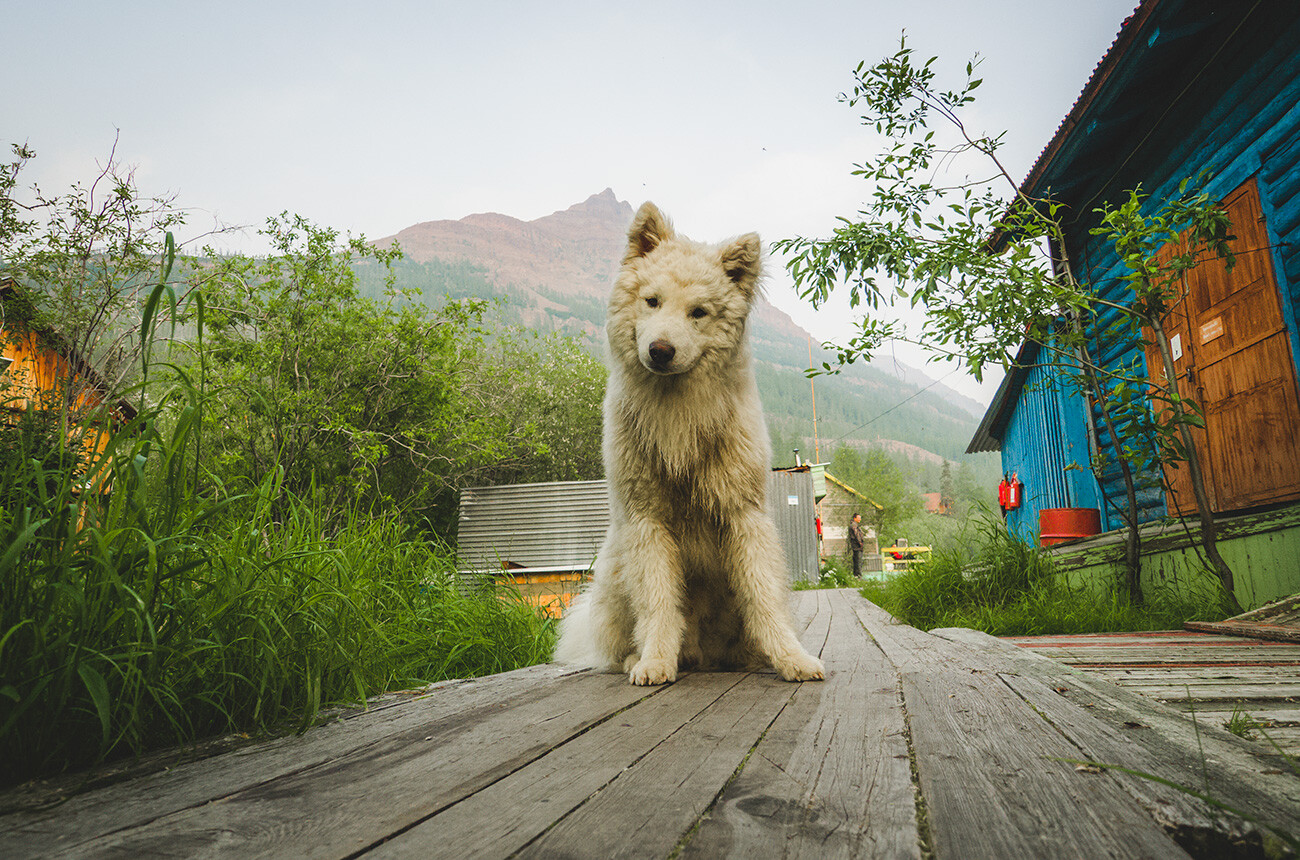
Pushok, the kindest guard on one Lama camp.
Pavel KuzmichevJust imagine: We were slithering across the ‘kurumnik’ and were already on our last legs when: bingo! We bumped into a group of anglers, one of whom turned out to be from New Zealand, no less. Vladimir told us that he had been born in Russia, but has lived on another continent for a long while and was visiting for the first time. And, as I was marveling at the way my wish had come true so quickly, Konstantin Viktorovich, the leader of our group, summed things up in a nutshell when he exclaimed: “What did I say?“
Dear readers,
Our website and social media accounts are under threat of being restricted or banned, due to the current circumstances. So, to keep up with our latest content, simply do the following:
If using any of Russia Beyond's content, partly or in full, always provide an active hyperlink to the original material.
Subscribe
to our newsletter!
Get the week's best stories straight to your inbox